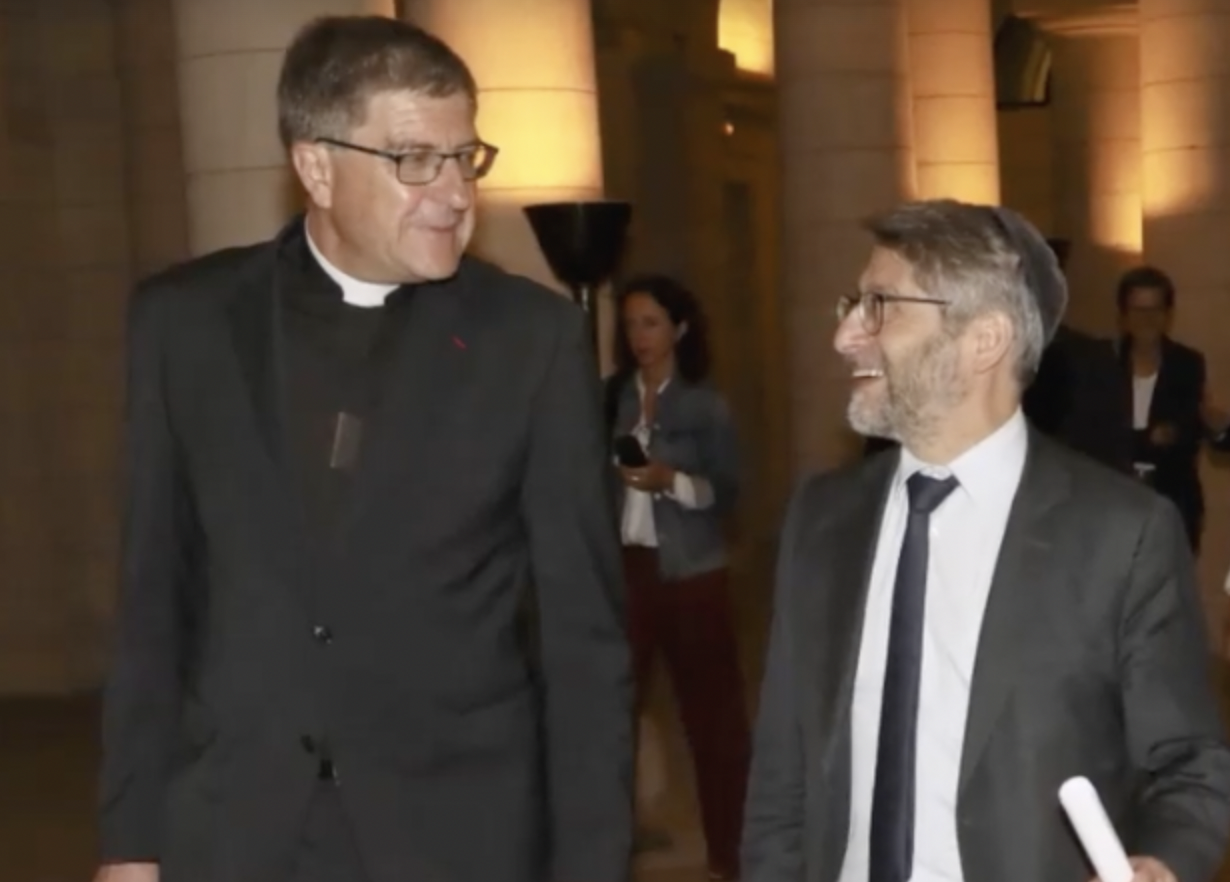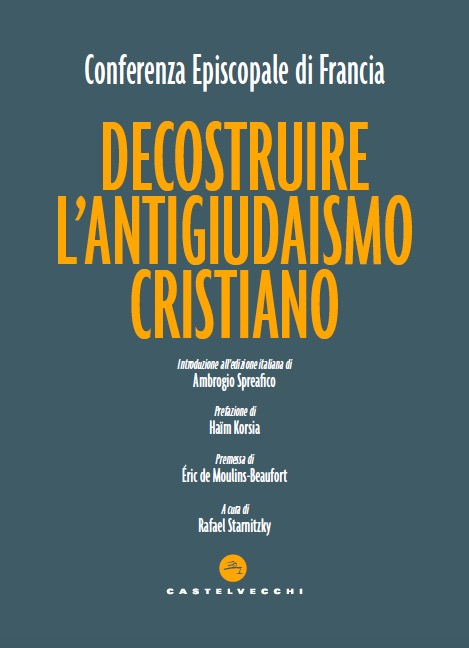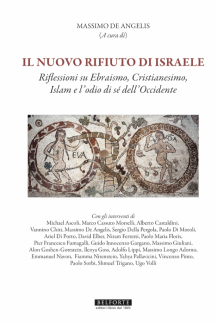BOOKS – Writing against prejudice

Last year, the Bishops’ Conference of France published a volume entitled Déconstruire l’antijudaïsme chrétien à partir de l’enseignement de l’Eglise (Deconstructing Christian anti-Judaism from the teachings of the Church), which addresses various unresolved problems in the relationship between Jews and Christians and focuses on the millennia-old persistence of certain prejudices. The rabbinate, not only in France, applauded the initiative. The vice-president of the European Rabbis Moché Lewin said  that the next step should be to translate the book “into all possible languages, because such a text does not exist on the European and global level, and the theological problems it raises are not limited to France.” The Italian editorial market was the first to take up the challenge, and the result is the book Decostruire l’antigiudaismo Cristiano (Deconstructing Christian Anti-Judaism), published by Castelvecchi. The book, conceived long before the attacks of October 7, deals with topics such as the harmful effects of “replacement theology” (supersessionism) and the accusation of deicide, often repeated over the centuries with disastrous consequences. It offers a twenty-step journey, starting with the concept that there is nothing more harmful, for a Christian, than the “hints of antisemitism” and “even anti-Judaism” that undermine the positive development of their faith.
that the next step should be to translate the book “into all possible languages, because such a text does not exist on the European and global level, and the theological problems it raises are not limited to France.” The Italian editorial market was the first to take up the challenge, and the result is the book Decostruire l’antigiudaismo Cristiano (Deconstructing Christian Anti-Judaism), published by Castelvecchi. The book, conceived long before the attacks of October 7, deals with topics such as the harmful effects of “replacement theology” (supersessionism) and the accusation of deicide, often repeated over the centuries with disastrous consequences. It offers a twenty-step journey, starting with the concept that there is nothing more harmful, for a Christian, than the “hints of antisemitism” and “even anti-Judaism” that undermine the positive development of their faith.
The comparison of twenty-five authors
 Another book, Il nuovo rifiuto di Israele (The New Rejection of Israel), a collection of 25 essays curated by Massimo De Angelis, a leader of Jewish-Christian dialogue, and published by Salomone Belforte, was born after the Hamas pogrom. It was inspired, De Angelis explained, “by the desire to see clearly beyond the thick layer of horror and to fully comprehend the meaning of what had happened, to arrive at a point of view that is firm, well-reasoned, and shared as much as possible.”
Another book, Il nuovo rifiuto di Israele (The New Rejection of Israel), a collection of 25 essays curated by Massimo De Angelis, a leader of Jewish-Christian dialogue, and published by Salomone Belforte, was born after the Hamas pogrom. It was inspired, De Angelis explained, “by the desire to see clearly beyond the thick layer of horror and to fully comprehend the meaning of what had happened, to arrive at a point of view that is firm, well-reasoned, and shared as much as possible.”
In these pages, 25 authors from different backgrounds and schools of thought, accepted the challenge of developing just as many reflections, divided into three sections: “Does the West no longer understand the Jews?”, “Judaism and Zionism”, and “Dialogue in the name of God”.
The book concludes with an appendix tracing the major milestones in the Jewish-Christian dialogue. It begins with the Ten Points of Seelisberg, a document drafted in August of 1947 by one hundred Christian delegates from various denominations and Jews. “There will be no peace in the word if there is no peace between religions, and there will be no peace between religions if there is no dialogue between religions,” writes the president of the Jewish-Christian Fellowship Marco Cassuto Morselli in the essay opening the third section. For Father Adolfo Lippi, a priest committed to dialogue, “a true Jewish-Christian empathy, born of the joyful rediscovery of the common origin, is necessary.”
Photo: Éric de Moulins-Beaufort, president of the French Episcopal Conference, with the country’s chief rabbi, Haim Korsia.
Translated by Chiara Tona, student at the Advanced School for Interpreters and Translators of the University of Trieste, trainee in the newsroom of the Union of the Italian Jewish Communities – Pagine Ebraiche.
